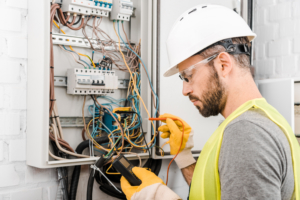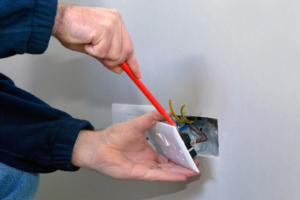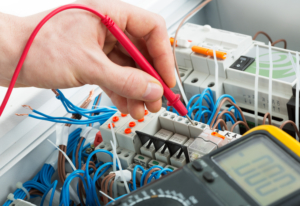Electrical Certification
What is Electrical Certification?
______________________________________________________________
Almost all properties require electricity to be habitable, but electricity can be a complex and dangerous form of energy. Accordingly, property owners need to ensure that it is installed and regulated correctly. If electrical supplies are not treated with the necessary level of care, then the consequences can be catastrophic. And that’s why obtaining the correct electrical certification should be a priority for all property owners.
What Is An Electrical Certificate And Why Do You Need One
Any electrical work that is carried out in a property will involve a complex set of procedures and techniques. As a result, it’s important that this is carried out to a high standard. Electrical installations which are not maintained correctly can lead to electrical faults that, in turn, can create fires. These incidents can result not only in injuries, but also fatalities. Therefore, it’s vital that electrical installations and appliances in a property are maintained.
An electrician is the only person who can carry out an electrical inspection, a landlord is not qualified to carry out the required tests. This inspection involves a series of tests – including insulation resistance, dead testing for continuity and live testing circuit breakers – which will result in an Electrical Inspection Condition Report (EICR) being produced. Depending on the results, an electrician will then deem whether the property has passed or not.
If the property is considered to have failed the EICR, then the property owner will have 28 days to rectify any faults and apply for another EICR to be completed. Once the property is deemed to have passed, and contain electrical installations which are safe, a certificate of compliance will be issued. Landlords need to ensure that these electrical certifications are completed at least every five years.
What About New Build Properties?
New build properties differ slightly, in that they need to be awarded an Electrical Installation Certificate (EIC) to be considered safe. An EIC is used to evaluate whether newly installed electrical installations are fit for purpose e.g. new circuits and specialist installations such as bathroom electrics. Once the initial EIC has been achieved, then it does not require carrying out again. From then on, the property owner will be required to complete an EICR every five years. Much like the EICR, an EIC needs to be completed by a registered electrician.
Are Electrical Certifications a Legal Requirement?
The straightforward answer to whether it’s a legal requirement to obtain electrical certifications is a strong yes. If a landlord is found to have breached the electrical safety regulations then they are liable for a fine of up to £30,000 from the local authorities. The landlord is also likely to be served with remedial notices instructing them that works must be carried out.
The Importance of Electrical Certification
Ultimately, electrical certification is a force for good. It may feel, initially, that it’s a time consuming and expensive procedure, but it’s there to protect both property owners and tenants. The best way to adhere to correct electrical certification practices is by aligning with registered electrical contractors. Not only will they be able to complete EICR and EIC reports, but they will be able to monitor expiry dates on these certifications and provide renewal reminders.
For more information on all types of Electrical Testing visit our blog archive
For additional electrical articles please visit our main BLOG page here





